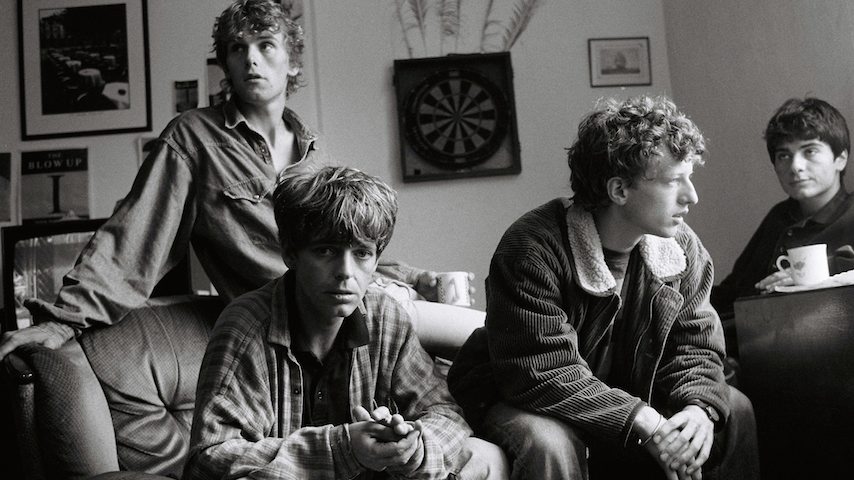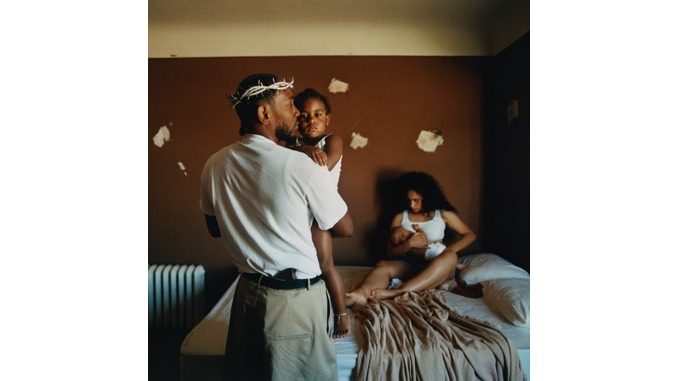People often say, “Lightning never strikes the same place twice.” In regards to musical discographies, that’s clearly not the case, but that was certainly true of The La’s, who faded into obscurity after one cult classic album. The Liverpool band’s self-titled debut turns 30 today (Oct. 1), and it’s hard to imagine Britpop or the London arrival scene in The Parent Trap without it—but the thing is, virtually nothing about that album went according to plan, and the story of what went down in those sessions has birthed some of the strangest folklore you could imagine.
To understand the mythical tales behind the band’s sole record, one has to understand the madness of its ringleader. The musical landscape would probably be better off without the tired “tortured genius” or “mysterious loner” tropes, but La’s frontman Lee Mavers was viewed as both, adding to the intrigue of his magnum opus. In 2003, The Guardian dubbed him “the JD Salinger of pop,” and that same year, a book was published by a curious admirer of the band who successfully tracked down Mavers, who disappeared from the public eye after the group disbanded.
The chaos of their album stemmed from Mavers’ inability to green-light anything that didn’t meet his standards of perfection. After The La’s formed in the mid-1980s and signed with Go! Discs, they began work on their first album, spending ungodly amounts of time and money (apparently £1 million) and burning through band members and producers like it was their sole purpose. If esteemed producers like John Leckie (Radiohead, The Stone Roses), Mike Hedges (The Cure, Siouxsie and the Banshees), John Porter (The Smiths, The Go-Go’s) and Steve Lillywhite (U2, Talking Heads) couldn’t figure out how to please the band, it’s hard to imagine any scenario where The La’s would’ve been satisfied.
Lillywhite was the sixth—or possibly seventh—and final producer to take a stab at recording the album to the band’s liking, but unsurprisingly, it was no walk in the park. “Lee Mavers had this blueprint in his head for the record,” Lillywhite recounted, “but it was like an acid trip that kept coming back to him, and it would mess him up. We’d record six songs that were fantastic, but if there was one thing wrong on the seventh, he would be convinced everything else was terrible and we’d have to start everything again.”
Other producers described similar experiences with Mavers’ fidgety perfectionism, and it sent additional band members out the door at an even quicker rate. There are supposedly over 20 past members of the band, not quite enough to give The Fall a run for their money, but probably enough for a standard British football match. The only anchor for Mavers was bassist and backing vocalist John Power, who remained with the band until 1991, when brewing tensions became too much for him. He’s the only La’s member besides Mavers to get songwriting credit, though it was only one song called “Over,” which appeared as the b-side to “Timeless Melody” and a bonus track on the 2001 deluxe edition of their album. Power didn’t luck into a credit alongside one of the most famously difficult songwriters, he had talent in his own right, later convincing Mavers to perform two of his own songs live with The La’s in 1991 (“Alright,” “Follow Me Down”) and going on to form his own band Cast, who ended up releasing those two tracks. Powers cleverly named his band after the last lyric on “Looking Glass,” the final track on The La’s debut: “The change is cast.”
Based on the revolving door of members, there are plenty of witnesses to Mavers’ unusual methods. There was a rumor that Mavers kept a collection of dust from vintage Vox amplifiers that had to be sprinkled over the instruments before recording anything. Another enjoyable bit of hearsay was that Mavers tuned his guitar to the hum of a refrigerator, which was actually confirmed by Babyshambles drummer Adam Ficek: “I remember he was saying, ‘Oh no, you gotta listen to the fridge, man. Listen to the fridge…Can you hear the fridge talking?’”
This mystical view of sounds is what informed Mavers’ songwriting and his laser-focused determination, even if it made him sound like a paranoid, pot-smoking lunatic. “What we’re doing is capturing something from a different dimension and harnessing it in a material net,” Mavers told a Japanese journalist in 1991. “To keep it in its purest form. Don’t dilute it. Don’t try to twist it for your own end.”
Mavers is just one of those eccentric figures who leaves peculiar anecdotes behind for everyone lucky enough to brush shoulders with him. New Zealand band Straitjacket Fits toured with The La’s in America, and the band’s vocalist and guitarist Shayne Carter wrote about an interesting encounter with Mavers in his 2019 memoir Dead People I Have Known. “In Salt Lake City we were riding an open goods lift, and Lee Mavers was on the floor above us, looking over into our cage and pushing a button that kept stopping and starting the lift. I looked up and told him to stop doing that, and that was the only thing I ever said to the singer of the La’s.”
Eventually, the band’s label couldn’t keep throwing money away on the recording process, so they finally released the Lillywhite version of the album in 1990 against the band’s wishes, complete with album artwork they never approved. Though it was three years in the making, Mavers was still a long way away from realizing his vision for the album, which led The La’s to repeatedly trash the record in interviews, calling it “a pile of shit” as well as “non-musical” and “non-rhythmical”—a weird statement about a particularly rhythm-driven piece of music.
The album itself was just as important to the Britpop movement as records like The Kinks Are the Village Green Preservation Society or My Generation. Their songs were rooted in the British Invasion’s tuneful pop, as well as that era’s burgeoning psychedelia and even its skiffle origins. Some of their music, especially b-sides and rarities, also evoke Jamaican, Indian and African music. Veering between dramatically straightforward and fascinatingly offbeat, Mavers’ songs were melodically intuitive and easy on the ears. Even in live performances, Mavers would introduce ticks of brilliance like vocalizing guitar solos, which sounded better than the actual guitar playing. “There She Goes” was the obvious pop hit that still shows up in movies and commercials (even though there’s a lyric about heroin), but other songs were haunting like a sad Irish pub tune (“Freedom Song”), utterly hypnotizing (“Looking Glass”) and almost punk-esque (“I Can’t Sleep”).
The La’s might not have been crucial influences to bands like Suede or Pulp, but their spirit and pop structures certainly resemble songs from groups like Oasis, Supergrass, The Coral and Ocean Colour Scene. And their reach goes beyond Britpop—you can even hear Mavers’ textured, snarling vocals and their classic guitar lines in the catalogue of experimental rock artist Amen Dunes.
Although album sessions from previous producers have since come to light, the band never released another original album and eventually split. Years later, notable musicians and producers like Johnny Marr tried to convince Mavers to work on new material with them, but Mavers was still hellbent on re-recording his 1990 album before moving on to something new. Though according to Matthew Macefield’s book In Search of the La’s, Mavers does apparently have new songs laying around, including one called “Raindance,” which he played for Macefield, who described it as “one of the best I have ever heard.” Marr also told Q about the existence of other Mavers originals, “Coco Daddy” and “On The Rebound,” but neither have seen the light of day. No matter how many additional collaborators or longtime fans think they can crack the code, no one can decide whether the elusive Mavers returns besides the man himself. However, The La’s did reform for several shows over the years, including a 2005 set at Glastonbury, and Mavers has occasionally come out from under his rock to perform solo, most notably a surprise gig under the name Lee Rude & The Velcro Underpants.
Perhaps the most surreal thing of all is that The La’s ended up on Letterman in 1991, and their songs were covered by Robbie Williams, The Boo Radleys, Sixpence None The Richer and Pearl Jam. Much to my chagrin, Eddie Vedder’s vocal tone is actually perfectly suited to “Timeless Melody.” Regardless of whether Mavers pulls out the guitar again or finally re-records that La’s album as he originally saw it, it was an amazing ride and an equally amazing story for 20-or-so Liverpudlians who called each other “la.”
Lizzie Manno is an associate music editor, Coldplay apologist, bread obsessive and lover of all things indie, punk and shoegaze at Paste. Follow her on Twitter @LizzieManno




